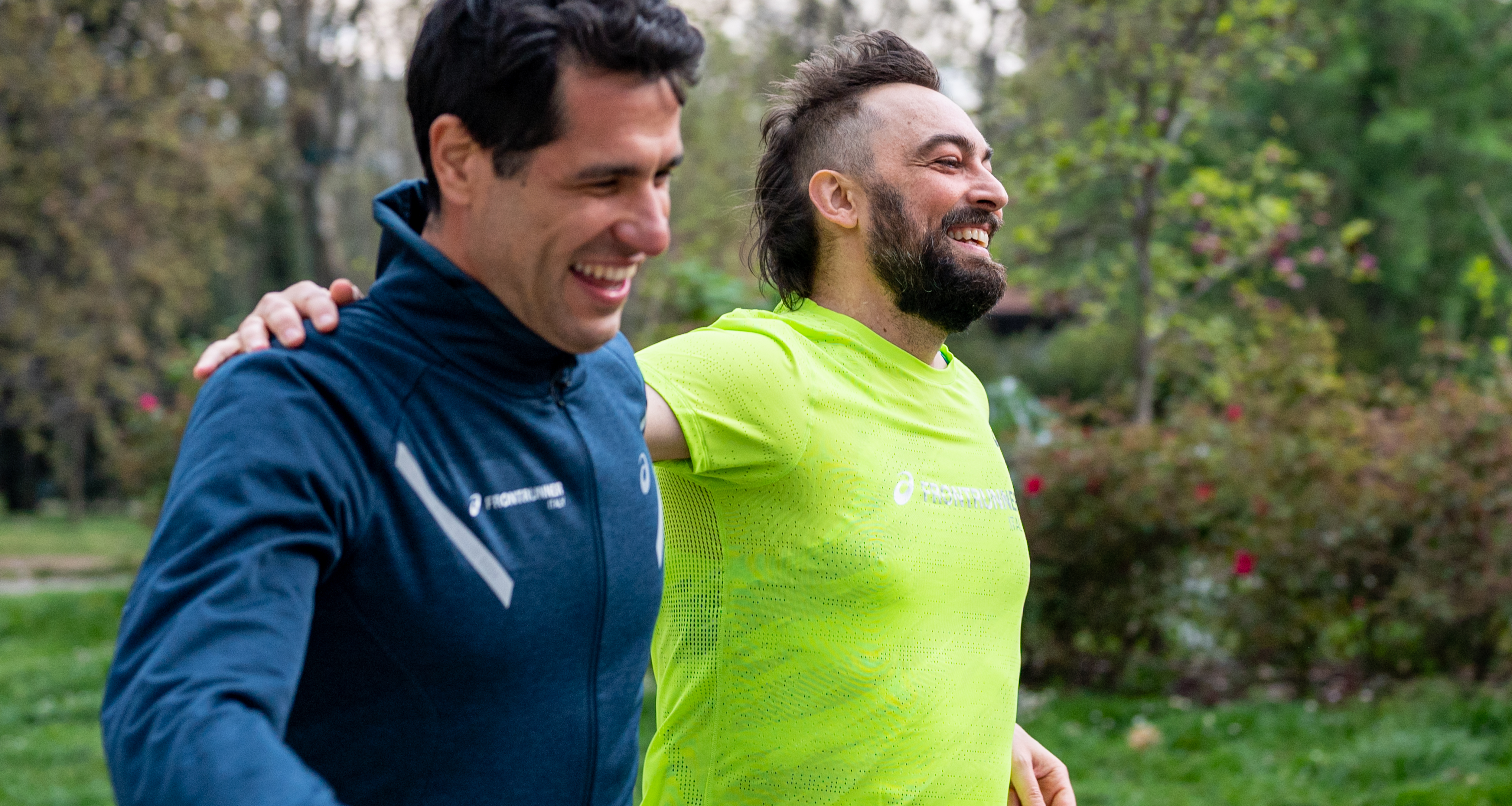Let’s be real for a second: The easiest way to make yourself feel inadequate as a runner is to compare yourself to other runners. Don’t get me wrong, we all do it, but it’s an exercise in futility. There are over 50 million runners in the U.S.; there will always be someone (or rather, millions of people) who runs faster than you, further than you, or has been running for more years than you, so what’s the point of comparing? All that does is make you feel disappointed in yourself and discourage you from running—and is that really what you want? I imagine the answer is no.
Running should serve whatever purpose you want it to. Whether you use it for stress relief, self-care, health management, depression prevention, or socializing, your identity and life as a runner are yours. Unless you’re a professional athlete who is getting paid to run, you’re out there for yourself, not anyone else. You deserve to celebrate your accomplishments and small victories without feeling the need to compare them to someone else’s.
Here are a few tidbits of advice for anyone struggling with comparison.
1. Focus on yourself
You’ve probably heard this before, but no one is paying attention to you as much as they are to themselves. Chances are other people aren’t focused on you at all. So take a note from them and focus on yourself. What is going to make you happy? Running a 5K without stopping? Completing a half marathon? Running outside twice a week? Cater your goals to your wants, give yourself all of your attention, and vow to only compete with yourself. And when you achieve those goals—big or small, whatever that even means—take the time to celebrate them in a way that makes you feel good. Take the day off after a race to do an activity you love or simply rest. Go for a long walk and then watch your favorite show. Whatever you choose, just make sure it’s all about you!
2. Keep your goals to yourself
When you sign up for a race or set a new running goal, it can be super tempting to share that information with other people. Most people do this to create a sense of external accountability, but more often than not, it backfires. This has happened to me numerous times, but I’ll share one memory that stands out to me.
A few years ago, I signed up for a marathon, and I told anyone and everyone about it. I’d never run a marathon before, and I thought that other people knowing would help motivate me during training. Needless to say, that isn’t what happened. Initially, several people I told said, “Hey, maybe I’ll do that too,” which immediately introduced comparison into the equation. I thought: Would they run it faster than me? Would they train better? This was supposed to be my thing, now it feels less special. Even worse, when I couldn’t run the marathon because I developed a stress fracture in my hip, I felt like an absolute failure. And of course, because people knew about the race, they asked me how training was going and I had to tell them. After that, I decided to only share my goals on a need-to-know basis and to wait until the race was over to tell others (I sometimes make an exception for the week leading up to it, when I’m certain that I’m running the race).
Sharing your goals may seem like a good idea, but it can be a sneaky comparison trap. Now, I prefer to establish my goals, write them in a journal, and remind myself of them every day. When I train for a race, I keep my training calendar where I can see it, and make sure to cross off runs as I complete them. I also take time to acknowledge my wins—finishing a long run, achieving a new PR, etc.—and even reward myself for them (most often a new piece of running gear). Now, if you’re someone who needs an accountability buddy, you can share your goals with them, but I recommend setting your boundaries up front. If you don’t want to compare times or distances, tell them. Say that you would prefer to just hype each other up—trust me, no one is going to decline that offer.
3. Work with a running coach
This tip is essentially a combination of the first and second. Enlisting the help of a running coach is a fantastic way to a) ensure that you’re staying focused on yourself and b) help you work towards your goals without telling the whole world. A running coach’s job is to support you, encourage you, and build you up when you’re feeling deflated. A good coach will never compare themselves, their other clients, or anyone else to you—and they’ll discourage you from doing so too.
For those of you who are looking for a running coach, the ASICS Runkeeper app has heard you. Explore our Guided Workouts and train with ASICS Running Coaches who will guide you through your running journey.
Bottom line: Comparing yourself to other runners accomplishes nothing. If you want to improve your running in some way—your pace, your distance, etc.—your best bet is to channel your attention inward, keep your head down, recruit help if you need it, and above all, do it for you.




